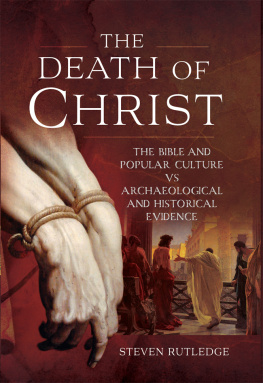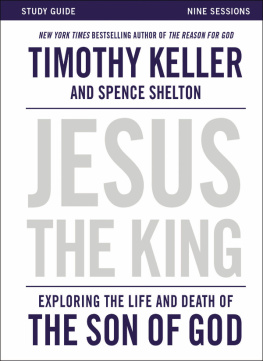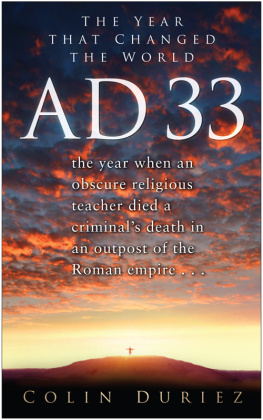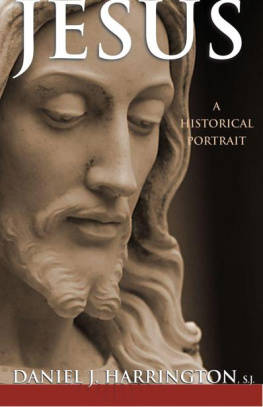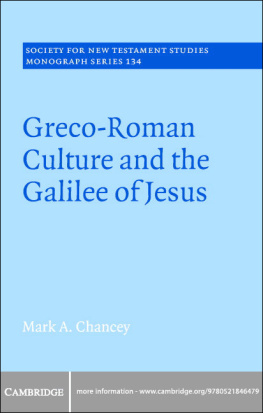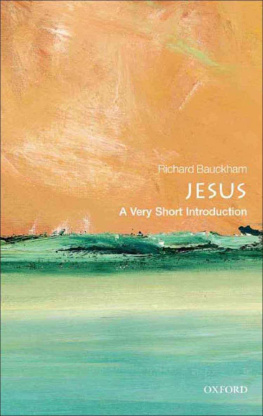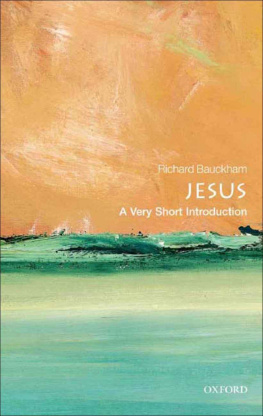Pagebreaks of the print version

The Death of Christ
The Death of Christ
The Bible and Popular Culture vs Archaeological and Historical Evidence
Steven Rutledge
First published in Great Britain in 2022 by
Pen & Sword History
An imprint of
Pen & Sword Books Ltd
Yorkshire Philadelphia
Copyright Steven Rutledge 2022
ISBN 978 1 39908 877 0
eISBN 978 1 39908 878 7
Mobi ISBN 978 1 39908 878 7
The right of Steven Rutledge to be identified as Author of this work has been asserted by him in accordance with the Copyright, Designs and Patents Act 1988.
A CIP catalogue record for this book is available from the British Library.
All rights reserved. No part of this book may be reproduced or transmitted in any form or by any means, electronic or mechanical including photocopying, recording or by any information storage and retrieval system, without permission from the Publisher in writing.
Pen & Sword Books Limited incorporates the imprints of Atlas, Archaeology, Aviation, Discovery, Family History, Fiction, History, Maritime, Military, Military Classics, Politics, Select, Transport, True Crime, Air World, Frontline Publishing, Leo Cooper, Remember When, Seaforth Publishing, The Praetorian Press, Wharncliffe Local History, Wharncliffe Transport, Wharncliffe True Crime and White Owl.
For a complete list of Pen & Sword titles please contact
PEN & SWORD BOOKS LIMITED
47 Church Street, Barnsley, South Yorkshire, S70 2AS, England
E-mail:
Website: www.pen-and-sword.co.uk
Or
PEN AND SWORD BOOKS
1950 Lawrence Rd, Havertown, PA 19083, USA
E-mail:
Website: www.penandswordbooks.com
Preface and Acknowledgements
M uch always goes into writing a work such as this and it is often difficult to know where to begin to credit those who have been of such great assistance along the way, but before I express my gratitude, just a brief note to the reader. First, in my citation of Biblical passages I have used almost exclusively the King James version of the Bible, simply because of a personal love of the majesty of its language and its style. For translations of Josephus and Philo I have relied primarily on the Loeb editions by H. St. J. Thackeray (for The Jewish War ), Louis H. Feldman (for Jewish Antiquities ), and C. D. Yonge (for Against Flaccus and The Embassy to Gaius ); similarly for translations of Cassius Dio I have relied on Earnest Carys translation of his Roman History . Latin translations are for the most part my own, and I have tried, probably as with any translator, with varying degrees of success to navigate between being faithful to the authors grammar and syntax but also trying to convey what I believe the sense of the Latin is attempting to communicate as well, never an easy task and one that carries with it a number of problems. Any infelicities of translation or factual errors rest solely with me. As to those to whom I owe a debt of thanks, Professor Robert Wagoner (emeritus Juniata College), an old and dear friend, is perhaps first and foremost. Many years ago he steered me away from all manner of prejudices and presumptions concerning not just Christianity but religion in general, and I could never thank him enough for the myriad of different ways in which he has helped me to view the complicated subject of religion and its place in human culture over time. I would also like to thank Professor Thomas Mertes (History, Linfield University) who lent me encouragement and had helpful suggestions on a draft of this work. Brennen Guillory, a minister at a local combined Methodist and Lutheran Church (McMinnville, Oregon), is also owed a debt of gratitude, first for inviting me initially to speak to his congregation on this subject, and then for generously looking at my manuscript with numerous suggestions from the perspective of someone of theological background in this area. Above all, as always, I owe my greatest debt to my life partner, Lori, who has now been a help and a support for nearly four decades, and who has suffered through every word of my writing, from my early undergraduate essays to the current work at hand. There simply is no greater love.
List of Abbreviations of Ancient Works and Sources
With a few exceptions, almost all abbreviations of ancient authors and works in this history follow the Oxford Classical Dictionary or the Oxford Latin Dictionary usage.
| App . | Appian |
| BCiv. | The Civil Wars |
| Hisp. | The Wars in Spain |
| Mith. | The Mithridatic Wars |
| Aur. Vict. | Aurelius Victor |
| De Vir. Ill. | De Viris Illustribus (On Famous Men) |
| BAf. | De Bello Africano (The African War, author unknown, attributed to Caesar) |
| BAlex. | De Bello Alexandriae (The Alexandrine War, author unknown, attributed to Caesar) |
| Caes. | Caesar |
| BCiv. | De Bello Civili (The Civil Wars) |
| BGall. | Commentarii De Bello Gallico (The Gallic Wars) |
| Cass. Dio | Cassius Dios Roman History |
| Cic. | Cicero |
| Att. | Epistulae ad Atticum (Letters to Atticus) |
| Brut. | Brutus |
| Fam. | Epistulae ad Familiares (Letters to his Friends) |
| Har. Resp. | De Haruspicum Responso (On the Response of the Haruspices) |
| Verr. | In Verrem Orationes (Speeches against Verres) |
| CIL | Corpus Inscriptionum Latinorum (Corpus of Roman Inscriptions) |
| Dio Chrysostomus |
| Or. | Orationes |
| Diod. Sic. | Diodorus Siculus |
| Eus. | Eusebius |
| Hist. Eccl. | Historia Ecclesiatica (History of the Church) |
| Eutrop. | Eutropius |
| Brev. | Breviarium ab urbe condita (A summary of history since Romes foundation) |
| Flor. | Florus |
| Epit. | Epitome (Epitome of Roman History) |
| Front. | Frontinus |
| Str. | Strategemata |
| Fronto |
| Ad M. Caes. | Letters to Marcus Aurelius Caesar |
| Hdt. | Herodotus (The Histories) |
| Hor. | Horace |
| Od. | Odes |
| ILS | Inscriptiones Latinae Selectae (Selections of Latin Inscriptions) |
| Jos. | Josephus |
| AJ | Antiquitates Judaicae (Jewish Antiquities) |
| Ap. | Contra Apionem (Against Apion) |
| BJ | Bellum Judaicum (The Jewish War) |
| Juv. | Juvenal ( The Satires) |
| Livy |
| Per. | Periochae (Summaries) |
| Macrob. | Macrobius |
| Sat. | Saturnalia |
| Nep. | Cornelius Nepos |
| Att. | Atticus (Life of Atticus) |
| Oros . | Orosius (History Against the Pagans) |
| Ovid |
| Fast. | Fasti |
| Pont. | Epistulae ex Ponto |
| Trist. | Tristia |
| Philo | Philo Judaeus |
| Flacc. | In Flaccum (Against Flaccus) |
| Leg. | Legatio ad Gaium (Embassy to C. Caligula) |

